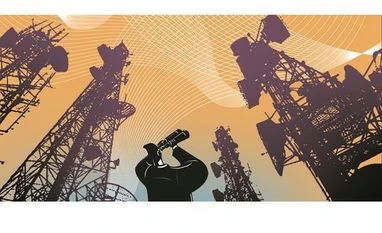The soft approach meted out by the Supreme Court to the telecom companies on the dues they owe to the government on their adjusted gross revenues (AGR) is because the latter has begun to make their payments. Both Airtel and Vodafone have paid up in total Rs 24,854 crore to the government of their total estimated liability of Rs 90,000 crore. The court held that both companies have to show financial commitment to make good their payment, including if necessary even personal guarantees by the directors.
It has also possibly thus settled a larger question in India that when a government due has been upheld, the company has to ensure it must be paid by whatever means.
One could say the apex court had little option as Vodafone-Idea would go into liquidation otherwise. But as the insistence on financial guarantee shows it is not so. It also helped that the companies have cooperated with the judiciary, paying up a little more than a quarter of their dues.
So even as the Court came down on the government for the demand of Rs 4 trillion raised on the public sector companies terming it as “outright misuse of our verdict”, the sector has reasons to come out happy from court rooms on Thursday.
The court has promised strict action against the department of telecommunications and one hopes it follows this up on serving notice on companies like Oil India, Gail and Rites to pay AGR dues. As strictures go, this is right up there. The court added that the department of telecommunications has to file an affidavit how such a mistake could be committed by them.
The broader issue in the AGR dispute is how much of their revenue should a telecom company share with the government. The Supreme Court has consistently held that India’s telecom service providers (TSP) will have to include non-core revenue too to calculate the levies they shall pay to the government. The decision last year ended a dispute running since 2005 between the TSPs and the telecom department.
More From This Section
The big question from then was how much is the liability of individual TSPs. Between Airtel and Vodafone-Idea. The demand on RJio was peanuts since it came into operation much later and was therefore unaffected. When the companies tried to reopen the case they were curtly told by the court, the issue is settled. And, nothing could come up for fresh consideration unless the companies began to pay up.
Of their total dues, Bharti Airtel has paid Rs 18,000 crore and Vodafone has paid Rs 6,854 crore till March 2020. Essentially the courts told the two companies that they are not off the hook and will have to provide substantive guarantees that they or their legal descendant companies shall be around and be bound by the commitment to pay their dues to the government. The companies were sought to be given a twenty year window by the department of telecommunications. The judges have made sure there is a cost to that window.
Disclaimer: Views expressed are personal. They do not reflect the view/s of Business Standard.
)